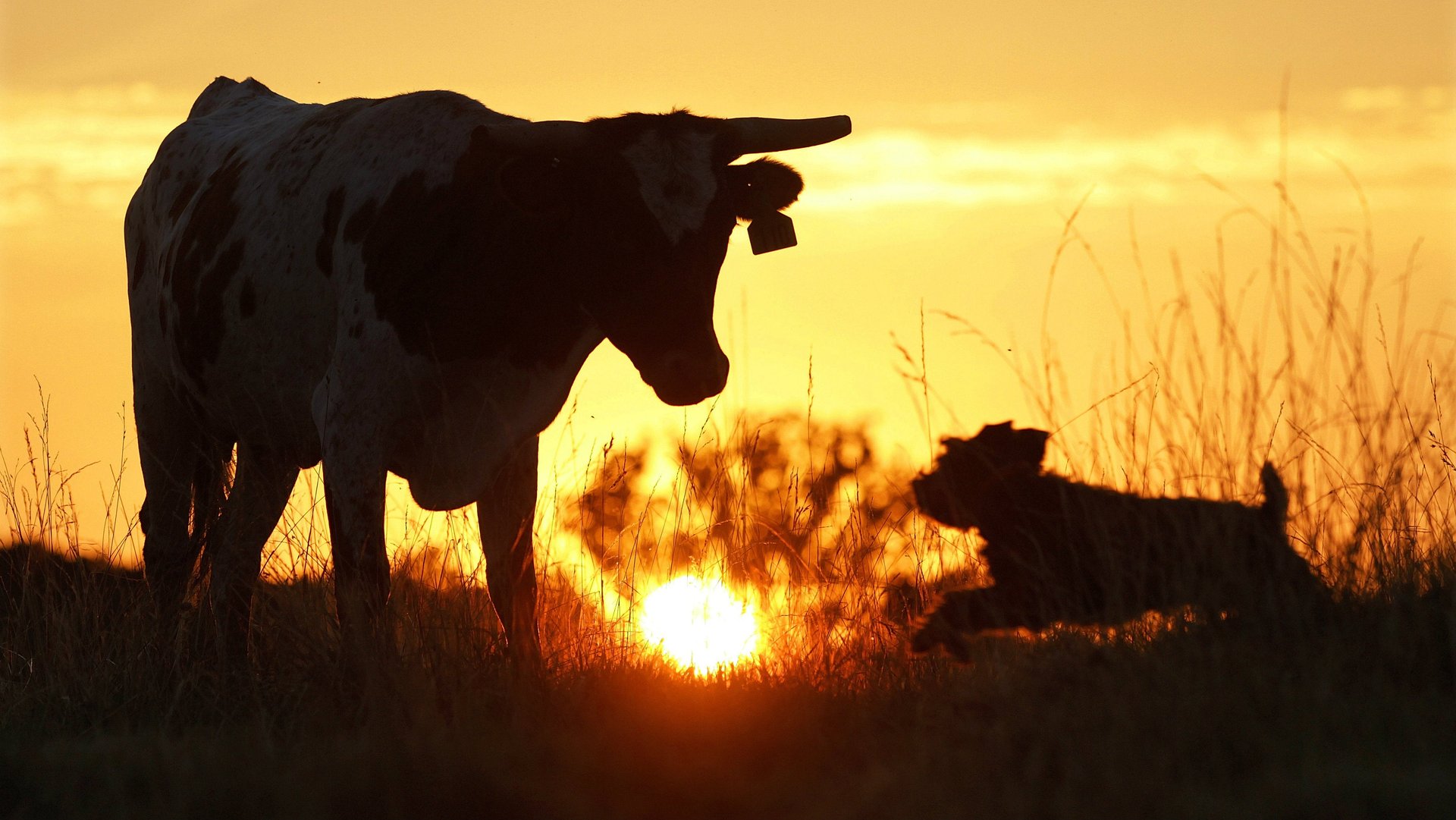Global leaders are ignoring one of the greatest causes of climate change
This week, as world leaders meet to hammer out a deal to reduce the greenhouses gases (GHGs) responsible for warming our planet, a major source of those gases is unlikely to make a significant appearance onto the agenda: meat.


This week, as world leaders meet to hammer out a deal to reduce the greenhouses gases (GHGs) responsible for warming our planet, a major source of those gases is unlikely to make a significant appearance onto the agenda: meat.
In 2006, the United Nations Food and Agriculture Organization (FAO) published the report Livestock’s Long Shadow, which blames the livestock sector for 18% of GHG emissions—a higher share, it said, than transportation. A 2009 report by environmental experts from other UN agencies—the World Bank and the International Finance Corporation—included factors left out or undercounted in 2006, like cattle respiration and ”overlooked land use,” and concluded that at least 51% of man-made GHGs come from livestock industries.
While figures on livestock’s contribution to climate change vary, they all reach the same basic conclusion: Meat is inextricably linked to our warming planet. But as countries file their climate change pledges, experts predict meat will not be on the GHG chopping block.
“You won’t see a pledge about increasing efficiency of ruminant systems operations,” Tracy Bach, an environmental law professor at Vermont Law School, told Quartz. ”The closest we’ll see is where individual countries… pledge to decrease deforestation or increase reforestation or afforestation [the establishment of new forests].” Brazil, a major beef producer, has made such a pledge.
Expect even less from the US—the country with highest per capita meat consumption. ”It’s not the mainstay of most of our greenhouse gas emissions,” Cary Coglianese, an environmental law professor at the University of Pennsylvania Law School, to Quartz. “Energy consumption and transportation are collectively much bigger sources.” The US Environmental Protection Agency can only face so many political battles at a time, and right now, agriculture is probably not worth the fight, he says.
People also hate being told what to eat, notes Gunhild Stordalen, director of Eat, an international effort to address the cross-section of food, health and sustainability, making meat reduction an unpopular political platform. Stordalen tells Quartz: “What we put on our plate is one of the last standing taboos in today’s society.”
In a 2013 follow-up report, FAO pinned only 14.5% of manmade GHGs on livestock, but also offered a ray of hope: while worldwide demand for meat is expected to increase 70% by 2050, emissions could be cut by 30% if best practices and new technologies were more widely followed.
“As families reach higher incomes, one of the first things they do is include more nutrient rich foods like beef in their diet,” says Kim Stackhouse-Lawson, executive director of global sustainability at the National Cattlemen’s Beef Association. That’s why, she says, organizations like the Global Roundtable on Sustainable Beef are so important, as they allow countries to share their best practices.
But even the so-called best practices that make the US livestock industry relatively efficient in terms of GHGs—like its reliance on corn and soy for feed instead of pasture, drugs for faster growth and antibiotics to control disease—raise plenty of other concerns. Exporting those practices might be good for climate change, but bad for, say, antibiotic resistance.
It’s a complicated network of challenges, to be sure, which makes the connection between diet and environment even more difficult for both government leaders and consumers to understand. A Nov. 2015 study done by the UK’s Chatham House, the Royal Institute of International Affairs, found “a considerable awareness gap” around the connection between meat and climate. The report describes a cycle of inertia, where inactive governments lead to a quiet press and an uneducated public. That public, then, never prods its governments to act.
Unless something major—and unexpected—happens in Paris, that cycle is likely to continue.
The press office for the 21st session of the Conference of the Parties to the United Nations Framework Convention on Climate Change did not respond to inquiries.